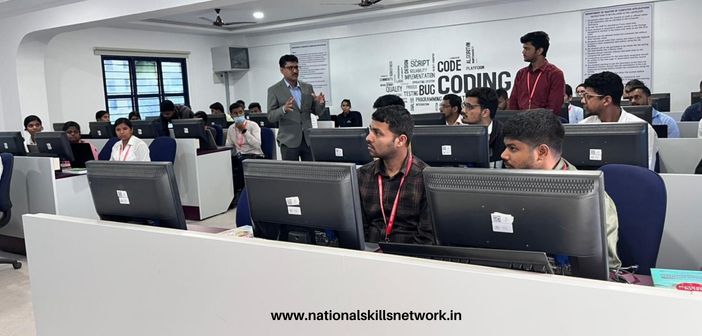A growing number of gigs, contracts, and part-time jobs are replacing traditional full-time employment globally, termed the “gig economy.” According to the Niti Aayog report, the gig workforce is expected to expand to 2.35 crore (23.5 million) workers by 2029–30.
To understand and learn more about the growth of gig economy in India and how it is an opportunity to create a flexible, skilled and inclusive workforce and to know more about the initiatives from TeamLease Edtech, we conversed with Ms. Neeti Sharma, President and Co-Founder at TeamLease Edtech.
Below are a few excerpts from our conversation. You can watch the full video interview on our YouTube channel.
Growth of gig economy and changing nature of work
Companies are more likely to engage independent contractors and freelancers than permanent employees in the gig economy since these jobs are frequently transient and flexible.
Ms. Neeti Sharma explained, “Before COVID-19, we saw that the gig economy was predominantly focused on the logistics industry, such as delivery drivers, or the hospitality industry. Companies like Swiggy, Zomato, Ola, etc., were the ones who first sparked the gig economy’s momentum. Everyone was on contract, on a project basis, and on-demand, but as the years passed, we realised that the gig economy did not have to be limited to entry-level or blue-collar jobs.”
Since the pandemic, working from home, remote working, and hybrid working have enabled people to think beyond face-to-face office work. Many employers are now opening their doors to the idea of taking people exclusively on a project basis and looking for a balance.
In-demand job roles in gig economy
- Digital Marketing
- Graphic Designing
- Architecture
- UI/UX designer
- Content writing
- Any project-based work across industries
Must have skills for a gig worker
- Core and hard skills
- Technology skills
- Project management
- Communication skills

Making the gig economy efficient and organised
“The biggest lesson we’ve learned is that corporations finally had to invest in learning budgets to help with the gig workforce, especially the drivers and delivery boys. I believe that while the gig workforce is transient or short-term in nature, an organisation can still gain a lot from it. Additionally, organisations will need to start thinking about how they can invest in mentoring, upskilling, and reskilling of the gig workforce,” stated Ms. Neeti Sharma.
Compensation for gig workers
Gig workers get paid usually on time and reasonably since the per-hour pay of a gig worker is higher than the rate of a full-time employee. It is because full-time employees receive additional benefits such as insurance and social security, which the gig workforce does not.
Ms. Neeti Sharma expressed, “The government is changing the laws surrounding the gig economy. I assume that employers will have to abide by some of these norms and provide social security or any other form of infrastructure so that the gig economy can flourish better.”
Initiatives from TeamLease Edtech in skill-based training to contribute to the gig economy
Teamlease Edtech collaborates with many higher education institutions where they are OPMs (online program managers). Also, they collaborate with public, private, open, and online universities to provide platform, content, assessment, and learning services.
While talking about the need for upskilling and reskilling, Ms. Neeti Sharma said, “We collaborate with universities and other institutions to provide relevant skills to students and get them employed. We also collaborate with various businesses to provide upskilling, reskilling, and new skilling to existing workforces. We also do a lot of induction and onboarding programs across tech and non-tech industries and work on a variety of essential skills, soft skills, and behavioural skills, making them experiment with continuous learning.
Our motto at Teamlease Edtech is “Making India Employable”. We are trying to create an environment where there are more people who can become employable. That is the cycle we follow for employees who are first-time learners, job seekers, or employed learners, among other things.”
Also read: TeamLease Degree Apprenticeships: Revolutionizing youth employability in India – https://nationalskillsnetwork.in/teamlease-degree-apprenticeships-revolutionizing-youth-employability-in-india/
“We also introduced apprenticeship-embedded degree programs, where financial dropouts can take part and become degree undergraduate students and get a stipend from employers. As a result, the opportunity of not being employed and earnings for the family is eliminated while the learner is pursuing a formal education, ensuring career growth”, said Ms. Neeti Sharma.













